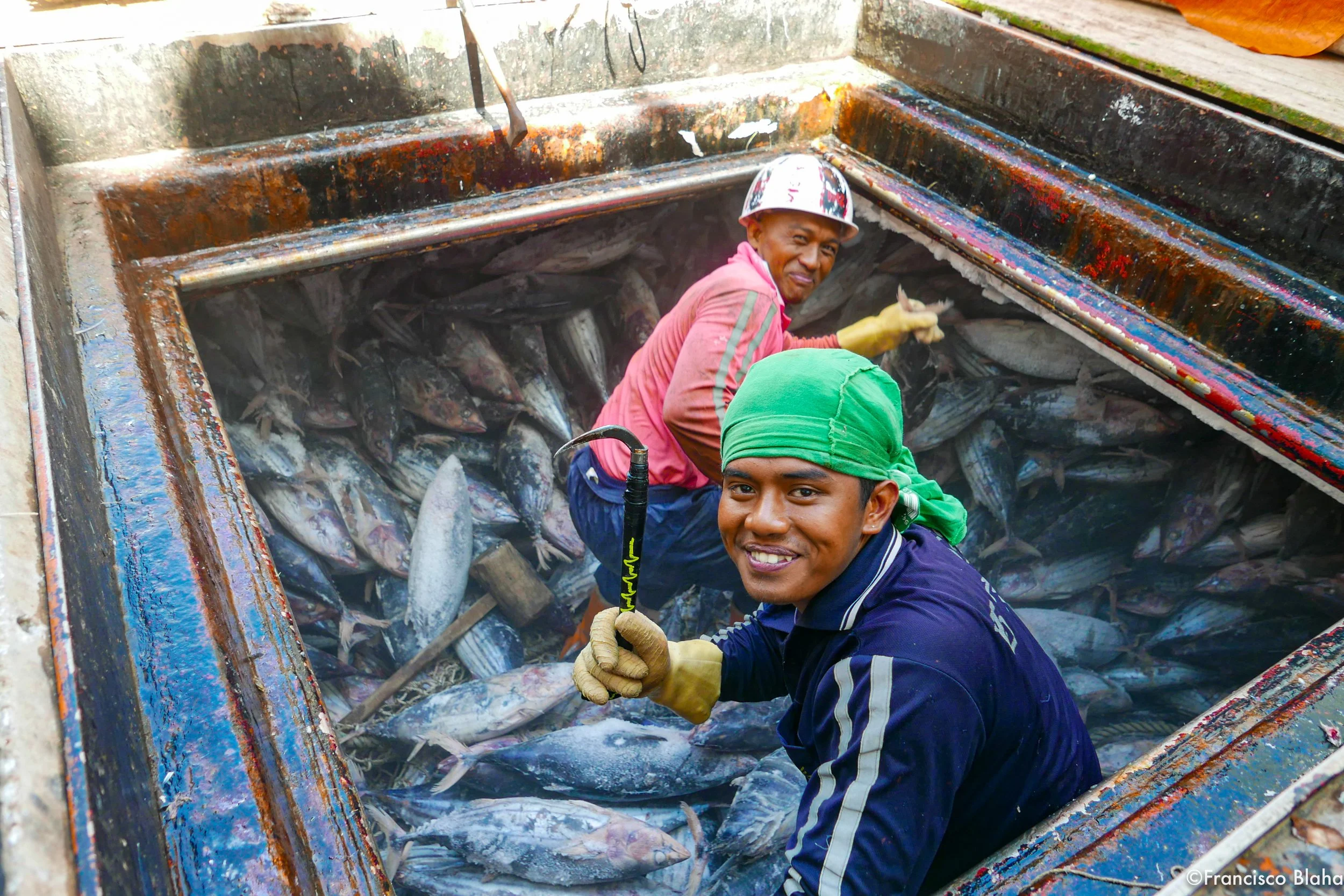Last year, the editors of the Oxford Handbook of Human Rights at Sea, Prof. Irini Papanicolopulu, SOAS University of London and Prof. Anna Petrig, University of Basel, invited me to write the chapter on Fisheries and Offshore Aquaculture (in press). As perhaps the first ex-migrant fisher to write about fishers' labour rights at that level, I was both surprised and honoured by their invitation. I accepted it, yet with trepidation as the only non-academic among all authors. However, I was reassured by the offers of support from both editors, who were my professors during my training at the Rhodes Academy in 2022.
I have been involved in advocating for fishers' labour rights alongside my work on fisheries compliance and research, primarily for personal reasons. I owe my life to fishing; it paid for my studies and allowed me to have a life I could not even dream of. It deeply saddens me that none of the many fishermen I meet today have the opportunities I had.
Although I value the interest and advocacy shown by many NGOs, academics and organisations, I have become increasingly concerned that fishers themselves are not sufficiently represented in the discussions and fora about their rights. Furthermore, it appears that retailers, importers, and others in the supply chain derive greater benefits than the fishers in the private initiatives established to protect their rights, supposedly.
Furthermore, the proliferation of private certifications in the labour sector, along with the "voluntaristic" approaches they represent, is not only a suitable replacement for the ratification, implementation, and enforcement of human and labour rights laws and policies, but many also consider them to be "neocolonial." This is because they identify fishers as subjects that require protection, they create a narrative that portrays developing states as being inadequate, and they establish "private jurisdictions" without statutory bodies, invoking the private certification's intention to provide such protection.
Throughout the entirety of my chapter, which is comprised of 27 pages, I investigate the legal safeguards that are available to fishers and, in particular, Migrant ones. Even after four decades since the adoption of the United Nations Convention on the Law of the Sea (UNCLOS), they continue to face challenges such as poor training, forced employment, payment troubles, and concerns regarding jurisdiction.
The International Labour Organisation (ILO), the International Maritime Organisation (IMO), and the Food and Agriculture Organisation (FAO) have all taken action to address these concerns. Although the Work in Fishing Convention (WFC) of the International Labour Organisation (ILO) specifies extensive labour norms, its influence has diminished due to low ratification rates. Measures taken by the International Maritime Organisation (IMO), such as the Cape Town Agreement and the STCW-F Convention, are intended to enhance safety and training; however, enforcement is lacking.
While RFMOs have started looking into the matter, the Crew Labour Standards CMM that the WCPFC developed is the only one that has been adopted thus far.
In the context of international law, the flag, the coastal area, the port, the market, and the states of nationality of the crew all play a part in the regulation of working conditions through their respective functions.
Under UNCLOS, flag states are primarily responsible for ensuring that crews receive training and that working conditions are safe. On the other hand, enforcement is frequently inadequate or nonexistent.
As a result of their failure, coastal states have taken measures to set labour standards within their Exclusive Economic Zones (EEZs). This is illustrated by the Minimum Terms and Conditions for licensing that are established by the Pacific Islands Forum Fisheries Agency (FFA). However, these standards do not apply to the high seas.
To a limited extent, port states can assist flag states by inspecting vessels in accordance with the criteria established by the International Labour Organisation's World Fleet Convention (WFC).
The United States of America and other market states can impose access limitations based on the use of slave labour; however, these limits are restricted to their specific market and only apply to individual boats, not the flag states of the vessels themselves.
When it comes to regulating crewing agencies, states of nationality of crew confront challenges for the simple reason that these agencies frequently operate from outside their jurisdiction. In several nations, civil society unions are uniting migrant fishermen in an effort to better their working circumstances; yet, there is still a need for additional action to be taken to address the fundamental structural problems.
To ensure that fishermen are treated fairly, it is necessary to fill in the many legal loopholes, guarantee that flag nations comply with regulations, and strengthen international collaboration.
The protection of fishers' rights and the improvement of working conditions are both dependent on networked multilateralism. Approaches that stem from the bottom up, such as those that involve unions and fishermen, are also fundamental.
The fishers I have worked with for over 40 years are some of the most resourceful, resilient, generous, and positive people I've met… chances are that they wouldn’t be alive otherwise.
The whole tuna industry, the much-needed income of most Pacific islands, rests on the fishers’ shoulders. We need to offer them respect, fair regulations, and equitable compensation, not pity.
